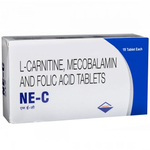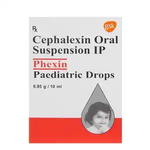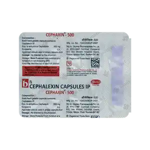calinolid
Introduction to calinolid
Calinolid is a medication used to treat serious bacterial infections. It is particularly effective against infections that are resistant to other antibiotics. This makes it a valuable option for treating conditions that are difficult to manage with standard treatments.
Composition of calinolid
Calinolid contains the active ingredient that works by stopping bacteria from producing the proteins they need to survive. This action helps to eliminate the infection from the body.
Uses of calinolid
- Treats serious bacterial infections such as pneumonia and skin infections.
- Effective against MRSA (Methicillin-resistant Staphylococcus aureus) infections.
- Used when other antibiotics are not effective.
Side effects of calinolid
Common side effects:
- Headache
- Diarrhea
- Nausea
- Vomiting
Serious side effects:
- Changes in blood cells
- Vision problems
- Issues with blood sugar and body chemicals
- Muscle function problems
Precautions of calinolid
Calinolid should not be taken with certain medications like MAOIs or warfarin due to potential dangerous interactions. It should be avoided during pregnancy unless the benefits outweigh the risks. Foods high in tyramine should be avoided as they can lead to a dangerous increase in blood pressure. Regular blood tests are recommended, especially for long-term use, to check for potential issues with blood cells.
How to Take calinolid
- Adults typically take 600 milligrams orally twice a day, every 12 hours.
- Children under 12 are prescribed a different amount based on their weight.
- Take the medicine with a full glass of water, with or without food.
Conclusion of calinolid
Calinolid is a powerful antibiotic used to treat serious bacterial infections, especially those resistant to other treatments. While it is effective, it is important to be aware of its side effects and interactions with other medications. Always follow your healthcare provider's instructions when taking calinolid to ensure the best possible outcome.
Similar Medicines
More medicines by Cachet Pharmaceuticals Pvt Ltd
Related Medicine
Available in 2 variations

Calinolid 600mg Tablet
Calinolid 600mg Tablet
strip of 10 tablets

Calinolid 600mg Infusion
Calinolid 600mg Infusion
bottle of 300 ml Infusion
Related Faqs

Can the use of Lynzie cause diarrhea?
One potential side effect of Lynzie is diarrhea Lynzie is classified as an antibiotic designed to eliminate harmful bacteria from the body However in doing so it may also disrupt the natural balance of beneficial bacteria in the gastrointestinal tract leading to the development of diarrhea If you find yourself experiencing persistent or severe diarrhea while taking Lynzie it is important to address this concern with your healthcare provider Engaging in an open conversation with your doctor will allow them to evaluate your symptoms provide appropriate guidance and make any necessary adjustments to your treatment plan Remember your doctor is there to support you and ensure your overall wellbeing so never hesitate to seek their professional advice regarding any potential side effects or concerns related to your medication

What foods should I avoid while taking Nzode?
It is highly advised to refrain from consuming excessive amounts of food that are rich in tyramine content Certain food items that undergo fermentation curing aging or spoilage tend to contain elevated levels of tyramine Examples of such foods include cheese red wine pickles and overripe fruits When Nzode is being taken the consumption of tyramine can lead to a sudden increase in blood pressure levels potentially resulting in a critical emergency situation Therefore it is crucial to exercise caution and avoid the intake of these tyraminerich foods while using Nzode in order to prevent any complications or adverse reactions that may occur It is always recommended to consult with a healthcare professional for guidance on dietary restrictions and to ensure the safe and effective use of Nzode

What foods should I avoid while taking Tadlam?
It is important to be cautious of consuming excessive amounts of food that are rich in tyramine Tyramine is found in a variety of foods that undergo processes such as fermentation curing aging or spoiling These foods include items like cheese red wine pickles and overripe fruits When taking Tadlam it is crucial to avoid consuming tyramine as it can potentially lead to a dangerous increase in blood pressure possibly leading to a medical emergency Therefore it is advisable to be mindful of the tyramine content in the foods you consume while on Tadlam to ensure your safety and wellbeing

What foods should I avoid while taking Zenlid?
It is important to be cautious and limit the intake of food that is rich in tyramine Foods such as cured meats fermented products aged cheeses and spoiled items have a high tyramine content and should be avoided in large quantities These include red wine pickles and overripe fruits When combined with Zenlid consuming tyramine can lead to a dangerous increase in blood pressure This can potentially result in a medical emergency that requires immediate attention and intervention Therefore it is crucial to be mindful of the types and quantities of food consumed especially when taking Zenlid in order to prevent any potential risks or complications arising from the interaction between tyramine and the medication A balanced and controlled diet along with regular monitoring of blood pressure can help ensure your safety while taking Zenlid

Can the use of Ibizolid cause diarrhea?
Ibizolid being an antibiotic does have the potential to induce diarrhea as a side effect While its purpose is to eliminate harmful bacteria it can also disrupt the balance of beneficial bacteria in the digestive system consequently leading to diarrhea Should you encounter persistent and severe symptoms of diarrhea it is advisable to seek medical attention and discuss your concerns with your healthcare provider They can assess your condition and provide appropriate guidance and assistance By addressing the adverse effects and devising a suitable course of action your doctor can help alleviate the discomfort and ensure your wellbeing Remember open communication with your healthcare professional is essential in managing any concerning side effects to ensure the best possible outcomes for your health

What foods should I avoid while taking Zolidale?
It is important to be cautious and refrain from consuming excessive amounts of food that are rich in tyramine Such foods that are fermented cured aged or even spoiled tend to have high levels of tyramine Examples of these foods include cheese red wine pickles and overripe fruits Combining the intake of tyramine with Zolidale can lead to a disturbing increase in blood pressure potentially causing an emergency situation Consequently it is crucial to be mindful of this potential interaction in order to maintain your wellbeing Keep in mind that moderation and knowledge of tyraminerich foods can help you avoid any unwanted health complications
Disclaimer : This information is not a substitute for medical advice. Consult your healthcare provider before making any changes to your treatment . Do not ignore or delay professional medical advice based on anything you have seen or read on Medwiki.
calinolid
Prescription Required
Manufacturer :
Cachet Pharmaceuticals Pvt LtdComposition :
linezolid














.svg)
